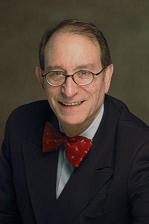 To the general public, and even to some in the medical profession, rare diseases, not surprisingly, often suffer a low profile. Consequently, the value of studying them may be underappreciated for the benefits they bring not just to patients with rare diseases, but to the broader population. However, Rosenblatt sees the study of rare diseases as serving a practical, if not Hippocratic, purpose, “There are thousands of inherited genetic disorders, some of which are not at well known as others like cystic fibrosis, muscular dystrophy, sickle cell, Tay-Sachs, and thalassemia. But when you have a disease – whether or not it’s common – doesn’t matter; you still have the disease. So there is a need to care for people with rare disorders just as much as those with common disorders.”
To the general public, and even to some in the medical profession, rare diseases, not surprisingly, often suffer a low profile. Consequently, the value of studying them may be underappreciated for the benefits they bring not just to patients with rare diseases, but to the broader population. However, Rosenblatt sees the study of rare diseases as serving a practical, if not Hippocratic, purpose, “There are thousands of inherited genetic disorders, some of which are not at well known as others like cystic fibrosis, muscular dystrophy, sickle cell, Tay-Sachs, and thalassemia. But when you have a disease – whether or not it’s common – doesn’t matter; you still have the disease. So there is a need to care for people with rare disorders just as much as those with common disorders.”
Rosenblatt approaches his research with a dual perspective of being able to help actual patients while broadening the understanding of human biology. “One of the strengths of studying patients with rare diseases, particularly diseases with a genetic component, is that they are manageable, he explained. “You can get to the bottom of things and you can learn about the normal functioning of biology in all people.”
Rosenblatt works on many different rare diseases, but has been particularly focussed on patients with difficulty assimilating the critical vitamin B12, which is found only in foods derived from animals. A lack of B12 can cause anemia, problems with the brain and other serious medical issues.
One might wonder about the bigger picture in researching something that affects relatively few people. To that, Rosenblatt, points to discoveries in the last century that helped us understand the source and importance of folic acid and vitamin B12 to the betterment of all people. In fact, two Nobel prizes were given to discoveries relating to vitamin B12 – one on how liver extract could reverse vitamin B12 deficiency, and one for determining the structure of the vitamin.
Rosenblatt’s interest in rare disease began in 1971, when he was in Boston researching how folic acid affected human health. He returned to McGill to work with people studying the problems associated with B12 absorption, including Dr. Bernard Cooper at the RVH and Dr. Michael Whitehead at The Children’s. Rosenblatt developed a referral network where patient samples were sent in from all over the world. The biopsies were – and continue to be – used to grow cells and develop a series of tests to determine basic biological problems. “This allowed us to characterize patients into distinct groups and identify all of the genes responsible for their diseases.” That referral network has since evolved into one of the only two diagnostic labs of their kind in the world.
“At the MUHC, we are mandated to treat people with problems – common or rare. In a university hospital setting, we have the opportunity to work on basic discovery and lay the foundation of the medicine of the future. When you work in this area of medical or clinical research, you’re not looking for an immediate pay-off. The work we do is building a foundation of solid medical science that will be the medicine of the future.”
Read the full article from the MUHC
October 5, 2012
